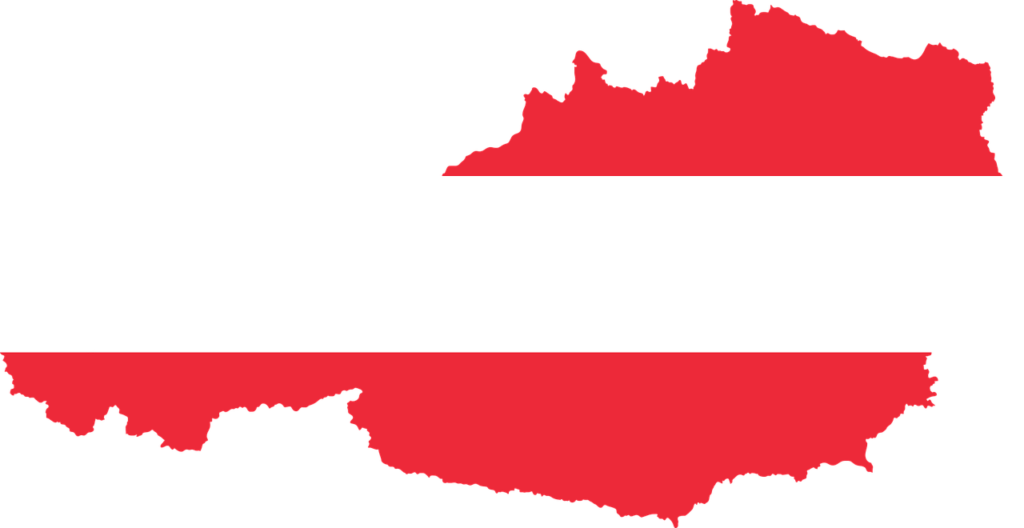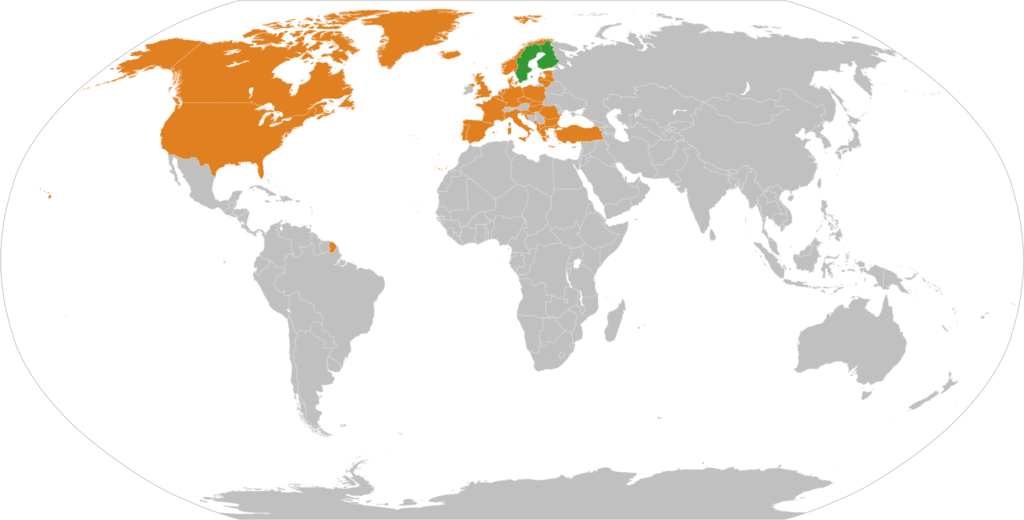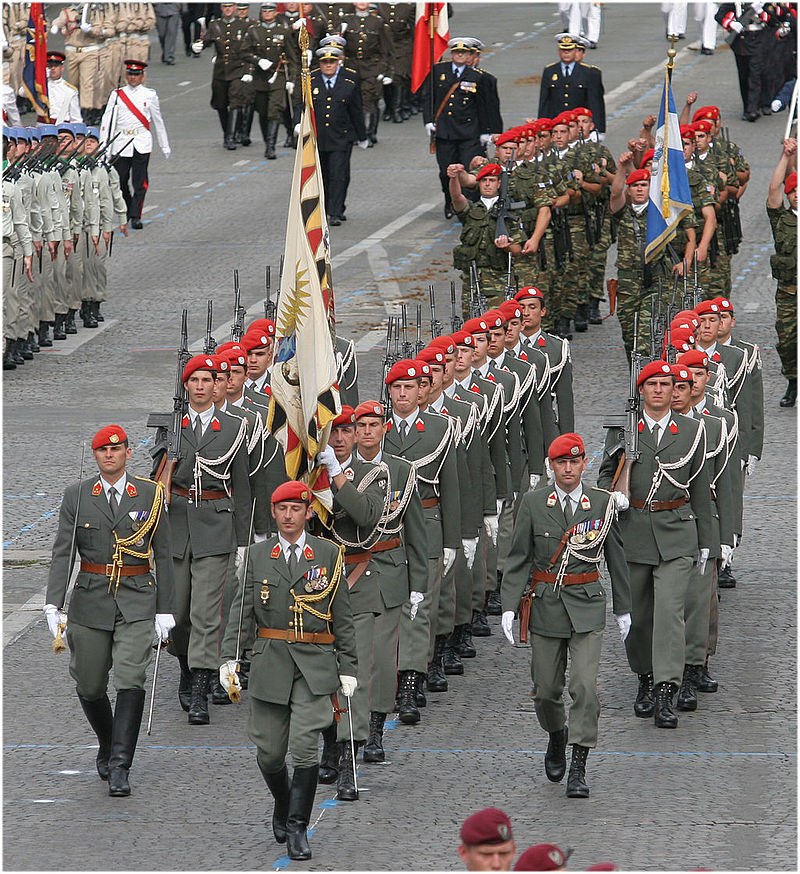Austrian neutrality after the invasion of Ukraine
While the invasion of Ukraine led to a wave of support for NATO membership in several countries, Austrians still believe their country should remain neutral.
In a nutshell
-
-
-
-
-
-
-
-
-
-
-
-
- The majority of Austrians do not want their country to join NATO
- They expect Austria to cooperate with other European countries on defense
- Political voices calling for an end to neutrality are still a minority
-
-
-
-
-
-
-
-
-
-
-

The Russian invasion of Ukraine resulted in a dramatic change of opinion in Nordic countries on the question of neutrality. For years, polls in Finland had shown that between 22 and 25 percent of respondents supported joining NATO, even after the annexation of Crimea and the secessionist uprisings staged by the Kremlin in eastern Ukraine. At the end of February 2022, however, 50 percent of the population was in favor. By June, it was 75 percent.
In Sweden, the shift was not as drastic, but nevertheless clear. In June, 60 percent were in favor of NATO accession. There, too, the Russian aggression against Ukraine in 2014 had had little impact on public opinion. In 2017, only 32 percent of respondents wanted to abandon neutrality.
Even in Switzerland, which has been officially neutral since 1815, 52 percent of respondents in a survey conducted in May and June were in favor of closer collaboration with NATO. There is a growing recognition that small countries can only defend themselves by partnering with other states – which requires, among other things, coordinating weapons systems. For the first time in two decades, the proportion of Swiss citizens supporting neutrality declined, falling to 89 percent from 96 percent in January.
Mikhail Gorbachev and a part of history goes away

Growing support
Meanwhile, support for neutrality in Austria remains high and continues to rise. Ninety-one percent of those surveyed said neutrality is important to them, with 70 percent calling it “very important” and 21 percent “rather important.” In 2019, only 81 percent had said neutrality mattered to them. Asked in the most recent polls about the prospect of joining NATO, almost two-thirds of Austrians (64 percent) opposed it. Only 16 percent were in favor.
Compared to the Swiss Army, the Austrian Armed Forces are in a pitiful state.
This attitude toward neutrality reflects the lack of military readiness in the population. A 2014 survey conducted in 64 countries in 2014 found that 25 percent of Western Europeans would be willing to fight for their country. The regional differences were considerable, especially those between neutral countries. In Finland, 74 percent declared themselves willing to take up arms to defend their country, in Sweden 55 percent and in Switzerland 39 percent. In Austria, the figure was only 21 percent.
Surrounded by five NATO members, Austrians feel largely protected despite the war in Ukraine. The shock caused by the invasion of neighboring Czechoslovakia by Warsaw Pact troops in August 1968 has been mostly forgotten. At that time, the Iron Curtain separated Austria from neighboring countries to the north, east and south. But since the country was integrated into the European Union in 1995, and since Austrian soldiers have joined military operations in crisis areas, it has been taken for granted that Austria can rely on external help in the event of an attack. Accession to the EU alone was a clear sign of the transition to a broader interpretation of neutrality.
Austrian-style neutrality
In a guest commentary for the newspaper Die Presse, top Austrian diplomat Thomas Mayr-Harting recalled that the Austrians “were always for neutrality, but not necessarily for defense on their own. Even in the years of the Cold War – and in the best days of Austrian ‘space defense’ – the (unspoken) basic assumption was always that we must be able to defend ourselves in the event of an attack from the outside until ‘others’ come to our aid.”
But if Austria relies on defense within the framework of Western states, Mr. Mayr-Harting argues, the Federal Armed Forces must be interoperable and trained according to NATO standards. The NATO Partnership for Peace (PfP), in which Austria has been participating since 1995, provides a good basis for such cooperation.
Embedded in the structures of the EU and relying on the EU assistance clause, which calls for solidarity between the member states, 55 percent of Austrians surveyed recently assessed their country’s situation as “safe” or “rather safe,” while only 20 percent consider Europe, on the whole, to be safe. Nevertheless, Austrians consider the Federal Armed Forces to be “very” or “rather important,” not least because they have proven themselves in disaster operations. In the survey, conducted shortly after the beginning of the war, 50 percent of respondents supported increasing the defense budget (which amounted to 0.8 percent of gross domestic product in 2021) and equipping the Federal Armed Forces with heavy weapons to enable it to repel attacks.

Roots of neutrality
Compared to the Swiss Army, the Austrian Armed Forces are in a pitiful state. Defense expert Franz-Stefan Gady estimates that it would take 10 to 20 years to build an operational army in Austria that could compete with that of Switzerland. Critics of neutrality accuse Austria of free riding on NATO in the field of security policy.
Austrian neutrality began with the Moscow Memorandum of April 1955. To achieve the “closest conclusion of the Austrian State Treaty,” the Austrian delegation in Moscow conceded that Austria would not join any military alliances and would not allow military bases on its territory. The Austrian government issued a statement that establishes “permanent neutrality based on the Swiss model.” The Soviet Union then agreed to sign the Austrian State Treaty and consented to the withdrawal of all occupying forces.
On 26 October 1955, the Austrian National Council (Parliament) passed the Neutrality Act. But neutrality is not included in the State Treaty, and its interpretation is therefore not subject to the former occupying powers. It is not guaranteed by any international treaty.
On the other hand, the obligation to “maintain and defend perpetual neutrality” is enshrined in the constitution. It could only be repealed with a two-thirds majority in the National Council. None of the parties represented in parliament is currently calling for the abandonment of neutrality.
Brussels is said to be reluctant to include Austria in the defense community.
At the turn of the millennium, things were different. At that time, the black-blue coalition government led by Wolfgang Schussel of the Christian-democratic Austrian People’s Party (OVP) initiated a debate on joining NATO. The initiative failed because the Social Democratic Party of Austria (SPO) rejected the motion, and an amendment or deletion of the neutrality law required their consent. When Social Democrat Alfred Gusenbauer succeeded Mr. Schussel in 2006, the topic was off the table. Only the Freedom Party of Austria (FPO) insisted on joining NATO until the matter gradually faded away after significant intraparty changes. Under chairman Herbert Kickl, the FPO today has adopted a neutral, but essentially Russia-friendly, position toward the war in Ukraine.
After the Russian invasion, there were isolated voices in the OVP calling for accession to NATO. However, Chancellor Karl Nehammer (OVP) stated that “Austria was neutral, Austria is neutral, Austria will also remain neutral.”
Foreign Minister Alexander Schallenberg (OVP) also declared that in a world “in which economic, military and intellectual conflicts have become more open, neutrality could once again be a value.”

Calls for change
The SPO believes that a neutral Austria in a mediating role contributes more to peace than if it were a member of a military pact. Only the leftist liberal NEOS raises doubts whether neutrality is still the best solution for Austria.
In an “open letter to the Federal President, the Federal Government, the National Council and the people of Austria,” more than 50 Austrian security experts, diplomats, entrepreneurs, politicians and columnists called for the adoption of a new security doctrine in May. Neutrality has never been checked for its current expediency but has been “elevated to a supposedly inviolable myth,” the signatories argue. Among them are Brigadier General of the Austrian Armed Forces Walter Feichtinger and former FPO Defense Minister Friedhelm Frischenschlager, as well as far-left columnists Robert Misik and Julya Rabinowich.
Austria, the letter says, has neglected increasing threats for too long. Today, the country is “unprepared, and in the most serious security policy crisis in Europe since 1945.” The signatories have different opinions on neutrality or NATO accession, but are all “convinced that the status quo of our security policy is not only untenable, but dangerous for our country.”
NATO has not commented on the debate in Austria, which has not yet really begun. Brussels is said to be reluctant to include Austria in the defense community. The contribution that NATO expects from the small country can be fulfilled even without accession.
It is extremely unlikely that one or more parties represented in the Austrian parliament will table a motion to repeal the Neutrality Act in this or the next legislative period. This would not be the case even if the Russian war against Ukraine were to escalate.
Author: Karl-Peter Schwarz
Source:





